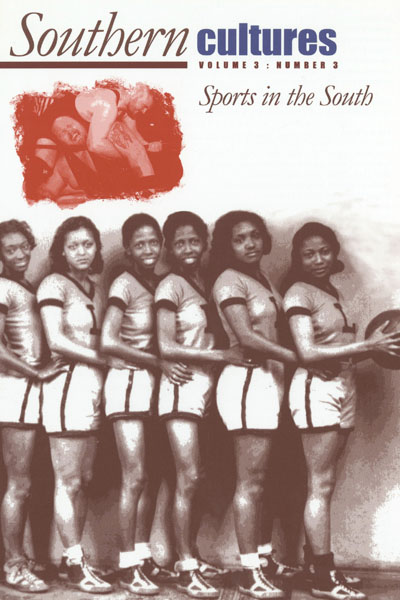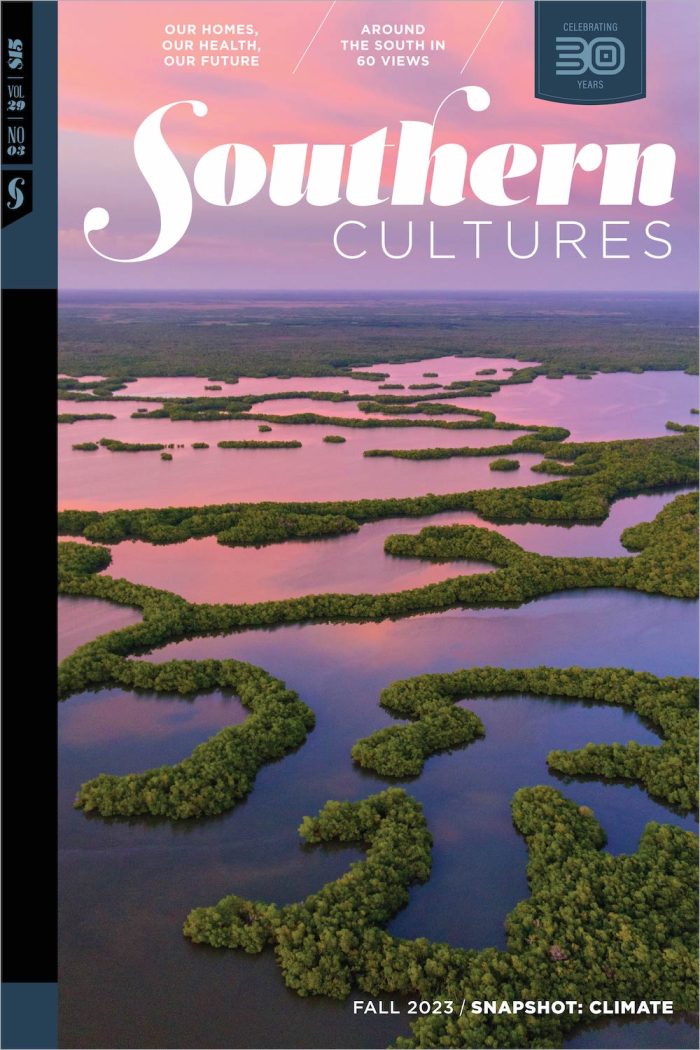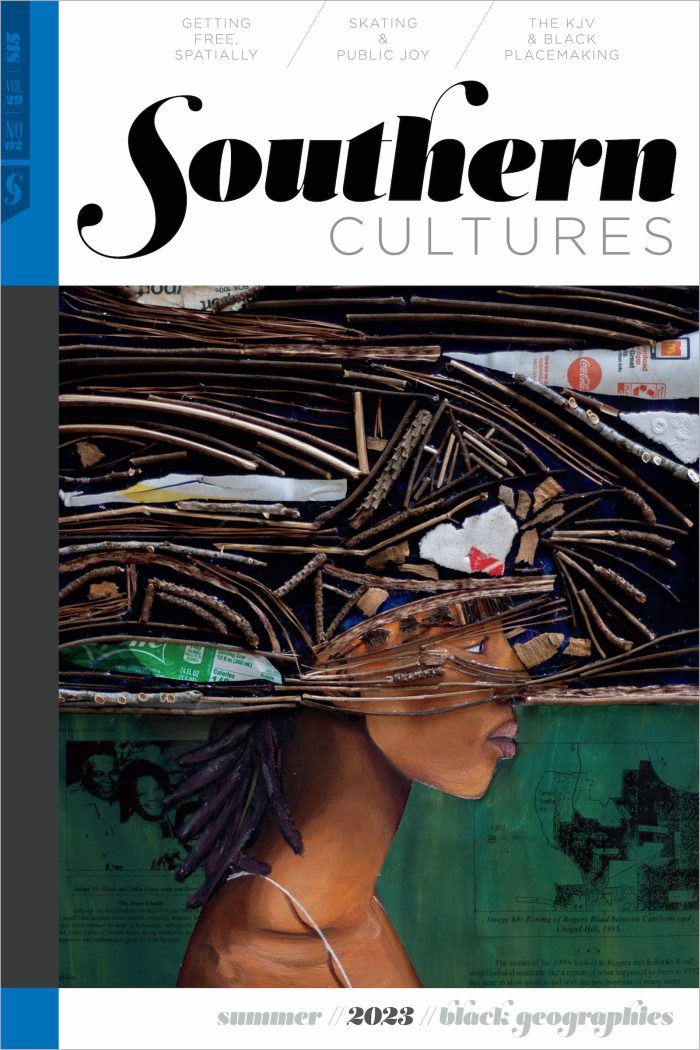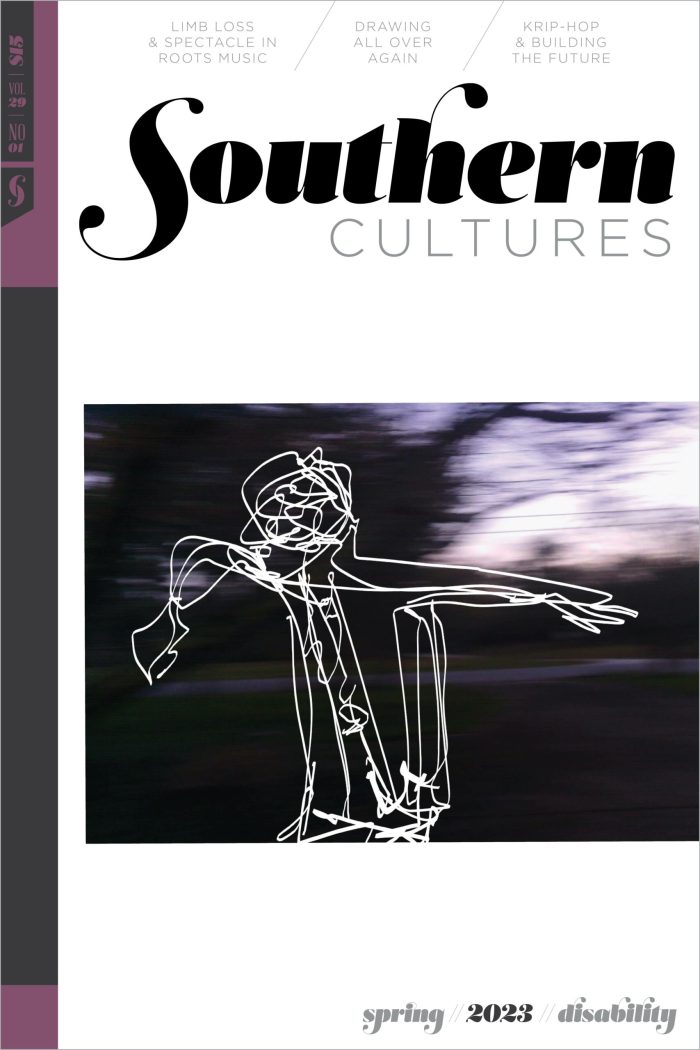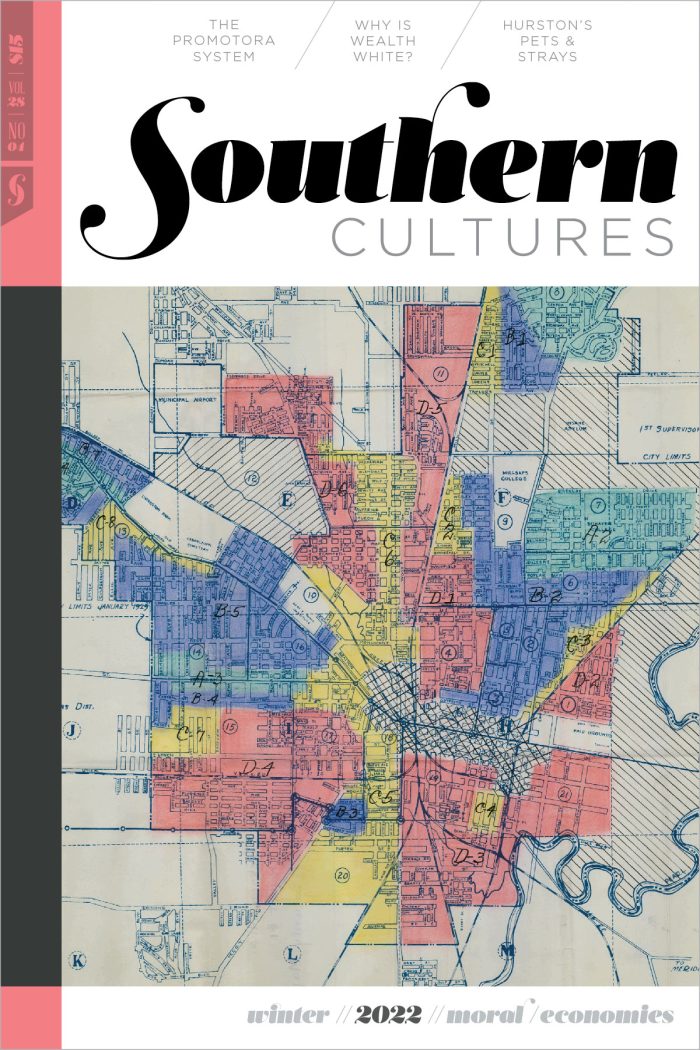BUY ACCESS
by Harry L. Watson
BUY ACCESS
Professional Wrestling and Southern Cultural Stereotypes
by Peter A. Coclanis,
Louis M. Kyriakoudes
BUY ACCESS
College Football and Southern Progressivism
by Andrew Doyle
The southern poet and critic Donald Davidson asserted that the South of the 1920s “disproved the axiom that two bodies cannot occupy the same space.” An emerging urban society built upon the secular gospel of progress and innovation coexisted uneasily with an agrarian society wedded to a more traditional value system. The fondest dreams of »
North Carolina Women's Basketball Uniforms, 1901–1997
by Pamela Grundy
It is the winter of 1997, and Tiffany Cummings plies the South Robeson High School basketball court, watched by a reporter who has traveled from the state capital to the tiny town of Rowland just to see her play. Cummings is the Mustangs’ star scorer, with a soft touch that mesmerized her coach the first »
BUY ACCESS
by George Holt
Atlanta has been a city on the move throughout its history, restless, seeking distinction and grandeur, and ever reinventing itself in the process. Far from destroying the railhead community of 10,000 during the Civil War, General William Tecumseh Sherman unleashed a relentless spirit of enterprise and civic boosterism that continues today. It is hard to »
BUY ACCESS
by Andy Ambrose
1996 Olympic Arts Festival In William Faulkner’s novel Absalom, Absalom! Shreve McCannon implored his southern-born roommate to “Tell about the South. What’s it like there. What do they do there. Why do they live there. Why do they live at all.”
BUY ACCESS
by Carla S. Huskey
An exhibition curated by Andy Ambrose, on view at the Atlanta History Center through 28 September 1997. In the 1830s, when Stephen Harriman Long visited the region now encompassed by the city of Atlanta, he commented that the area would “be a good location for one tavern, a blacksmith’s shop, a grocery store, and nothing »
BUY ACCESS
by LeeAnn Whites
University of Georgia Press, 1995 247 pages. Cloth, $45.00. University of Rochester Press, 1994 250 pages. Cloth, $45.00; paper, $24.95. Over the years much ink has been spilled by historians over the question of whether southern planters were precapitalist by virtue of their ownership of slaves or consummate capitalists by virtue of their production of »
BUY ACCESS
by Ronald L. F. Davis
Oxford University Press, 1995. To take a frontier place and show how it became something that it was not originally, something “southern,” is what Christopher Morris’s Becoming Southern purports to do. The place is Warren County, Mississippi, one of the most “southern” places in the nation on the eve of the Civil War. It was »
BUY ACCESS
by Kathryn McKee
The Johns Hopkins University Press, 1996. “Writing is a delightful invention,” Margaret Manigault wrote to her sister Georgina in 1811. “Is it not admirable that at this distance of thousands of miles we should be able to disclose with safety secrets of the utmost importance?” Joan E. Cashin opens these “secrets of utmost importance” to »
BUY ACCESS
by S. Charles Bolton
University of Georgia Press, 1996. Basil Armstrong Thomasson, known as Strong to his family, was a remarkable man whose diary is immensely valuable for what it tells us about the lifestyle of southern yeomen and equally interesting for what it reveals about Thomasson himself. He spent all his life in western North Carolina and his »
BUY ACCESS
by Kathleen Joyce
University of Georgia Press, 1996. There once was a story about religion in America. The story began in the early seventeenth century with the Puritan errand into the wilderness, moved on to tell of the birth of evangelical religion in the eighteenth century and the proliferation of Christian denominations in the nineteenth, and ended in »
BUY ACCESS
by Richard Barry Westin
University of North Carolina Press, 1996. The last decade has seen the historiography of public education in the South begin to come of age. James Leloudis’s Schooling the New South now takes its place along with the works of William Link and James Anderson as part of a major revisionist trend away from the early »
BUY ACCESS
by W. Fitzhugh Brundage
Greenwood Press, 1994. Susan Pringle Frost’s legacy is pervasive in Charleston, South Carolina. Millions of tourists have strolled through the city’ preserved neighborhoods, admiring their elegance and charm. As a founder of and force in the early preservation movement, Frost contributed mightily to making Charleston what it is today. Sidney R. Bland’s biography of Frost »
BUY ACCESS
by W. Miles Fletcher III
Routledge, 1995. In this concise book, the first to focus on Japanese firms in the South, anthropologist Choong Soon Kim provides many useful insights into a timely topic. As he notes, the sharp rise in Japanese investment in the United States during the 1980s and early 1990s has attracted much attention and has produced sharply »
BUY ACCESS
by Bill C. Malone
Duke University Press, 1996. University of Illinois Press, 1996. Ronnie Pugh’s biography of Ernest Tubb and Craig Morrison’s study of the rockabillies are more than worthy additions to the growing list of books on southern musicians; they are also contributions to the history of the southern working class. Although they chronicle the lives and careers »
BUY ACCESS
by John Shelton Reed
Neither the Dallas Cowboys nor the Atlanta Braves are exactly “America’s Team,” but both seem to have won the hearts of southerners. When the Fall 1995 Southern Focus Poll asked 801 residents of southern states and 481 other Americans “What is your favorite National Football League Team?” and “What is your favorite major league baseball »
BUY ACCESS
by Gavin James Campbell
“Aw, Mom! Do I have to? Can’t I stay out just a little longer?” The injustice of being called in to prepare for bed just as the fun was really starting has been replayed in countless yards across the South. Cicadas sing a goodnight lullaby that heralds the dolesome hour. Truding like the condemned to the scaffold, the child »
BUY ACCESS
by Fred Hobson
To most, the “Greatest Show on Earth” means the Ringling Bros. Barnum & Bailey Circus. To me it meant the Dixie Classic, indisputably the greatest holiday basketball tournament ever played. For three days in late December in those long-ago 1950s—always the Thursday, Friday, and Saturday after Christmas—12,400 fans piled into N.C. State’s William Neal Reynolds »
